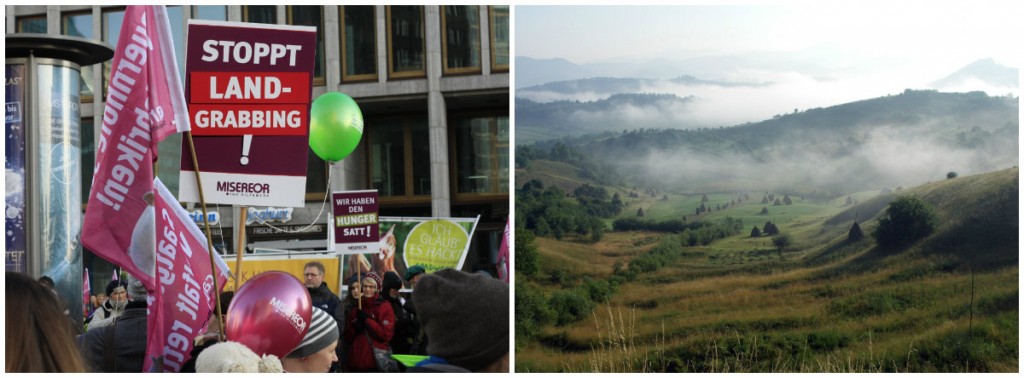
Land grabbing occurs when land that was previously used by local communities is leased or sold to outside investors, including corporations and governments. Local communities may lose their land by force, intimidation or misinformation, and can be left landless and dispossessed, without the means to sustain their livelihoods. The land that has been ‘grabbed’ is then often used for commodity crops, including agrofuels. Land grabbing is often accompanied by severe environmental degradation, the destruction of healthy ecosystems, water, soil and air.
Key Issues
Demand for land is increasing as the global population grows and the availability of fertile land and water is threatened by climate change and overconsumption. Investors and investor countries may be driven to the acquisition of foreign land by food security concerns, the prospect of rising land value, or the extractive and tourism industries.
These land acquisitions often take place without the concern or consultation of the affected local communities, and without sufficient assessments of environmental and social impacts. Frequently bought or leased for extremely low prices, the land is often cultivated using intensive, environmentally degrading methods that destroy ecosystems and pollute waters.
The acquisitions take the land from the people who work it, shrinking access to land for small-scale farmers and food producers, weakening rural communities and threatening small scale agriculture and food sovereignty .
Land grabbing in Europe
Although the issue of land grabbing is most often associated with the global south, it is a serious and growing concern in Europe as well, often involving thousands of hectares of land per deal. It is especially significant in Romania, Hungary, Bulgaria, Germany, Italy, and Spain, although concerns exist elsewhere, such as Poland.
According to this report by the European Coordination Via Campesina and Hands off the Land Network, while there there around 12 million farms in the EU, 50% of all farmed land is controlled by large farms (100 hectares and above) that represent only 3% of the total number of farms. “In Eastern Europe, the concentration of land ownership has been particularly marked since the collapse of the Berlin Wall. Many farmers were bankrupted when their countries entered the EU and highly subsidised agricultural products began flooding their markets. In the first six years, the majority of small farmers were not even eligible to apply for EU agricultural subsidies which fuelled sales of farms. Here a new elite group of speculators/investors have succeeded in capturing vast tracts of land.” The report reveals that one of the drivers of this European land grab and land concentration is the subsidies paid under the Common Agricultural Policy, which explicitly favours large land holdings, marginalises small farms, and blocks entry by prospective farmers. In Spain, for example, in 2009, 75% of the subsidies were cornered by only 16% of the largest producers.
What we can do
We need political and legislative change at the national and European level that supports rural development and encourages small scale and family farming, biodiversity, and environmentally sustainable practices by keeping the land in the hands of the people who work it. By reporting on the issue of land grabbing in Europe, organising campaign actions like the Land Grabbing Speakers’ Tour, and working closely with national organisations such as the Romanian Eco Ruralis and the German Bündnis Junge Landwirtschaft who focus on land grabbing in their respective countries, we aim to encourage the public and civil society to come together to lobby for these changes.
Links and further reading
- All Arc2020.eu posts on Land grabbing
- Land concentration, land grabbing and people’s struggles in Europe, the European Coordination Via Campesina and Hands off the Land Network, April 2013
- Farming money: How European banks and private finance profit from food speculation and land grabs , Friends of the Earth Europe, 12 January 2012
- Report on Land grabbing in East Germany: Young German Farmers Fight to Survive, Deutsche Welle, 23.01.2014
- Read all ARC2020 articles on Land grabbing
- Land Issues and Access to Land, Eco Ruralis Association
- ARC2020 Land Grabbing Speakers’ Tour

Keep up the great work and consider signing and sharing this Irish petition which references a French model of land sale management. Thank you
https://my.uplift.ie/petitions/put-limits-on-the-purchase-of-land-by-the-mega-wealthy